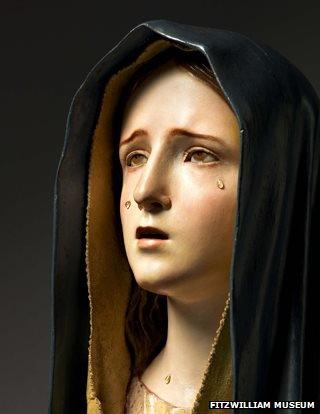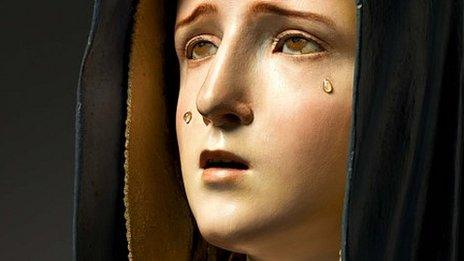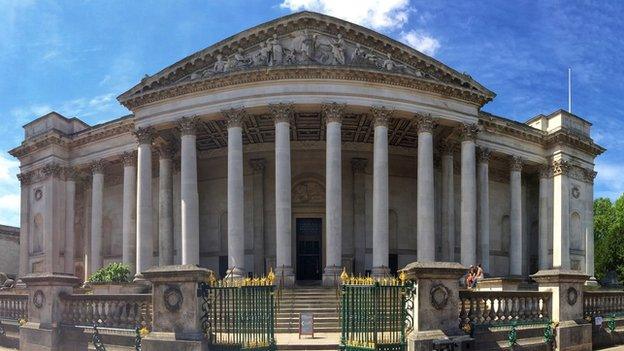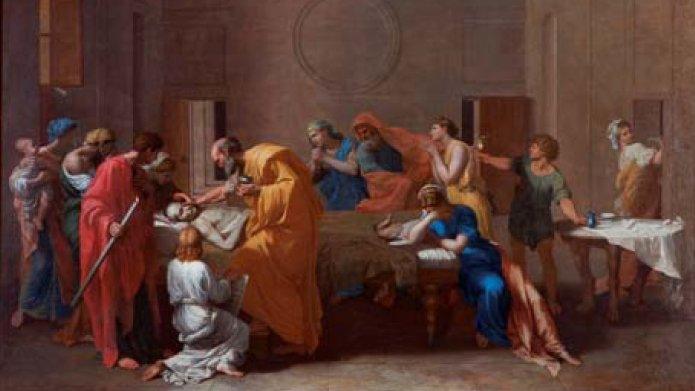Weeping virgin sculpture kept by Fitzwilliam Museum
- Published

The Mater Dolorosa - Virgin of Sorrows - was created by artist Pedro de Mena circa 1670
A 17th Century wooden bust of the weeping virgin, said to be one of the finest examples of its kind, has been "saved for the nation" after a public appeal, a Cambridge museum said.
The Fitzwilliam Museum needed £85,000 to secure the sculpture of the Mater Dolorosa by Pedro de Mena, which would otherwise have been auctioned.
Museum director Tim Knox said the fundraising was "right to the wire".
A "last-minute rush in donations" helped them meet the deadline, he said.
The Cambridge University museum's bid to purchase the Virgin of Sorrows sculpture was supported by £30,000 from the Art Fund and £10,000 from The Henry Moore Foundation.
However, a further £85,000 was needed by the end of September to prevent the private owner from selling it publicly.
Last-minute donations and "extremely generous donors who promised to make up the shortfall" had secured the sculpture for the museum, Mr Knox added.
'Fantastic addition'
"This has been right to the wire, and every single penny has counted."
The 33.6cm (13.2in) weeping virgin was most likely created for a private chapel, study or bedchamber and features eyes made of glass and eyelashes created from human hair.
It had been on loan at the Fitzwilliam from a private collection since the end of July while the museum tried to raise the funds to purchase it.
Its creator, the Spanish sculptor Pedro de Mena, external (1628-1688) was taught the art of wood carving by his father Alonso, a well-regarded sculptor of traditional religious images in Granada.
"Much of Mena's work was destroyed during the Spanish Civil War and there is not a single autograph piece by Mena in a UK museum," Mr Knox said.
It would be a "fantastic addition" to the museum's small collection of wooden sculptures, he added.
- Published31 July 2014

- Published5 July 2014

- Published1 November 2012
